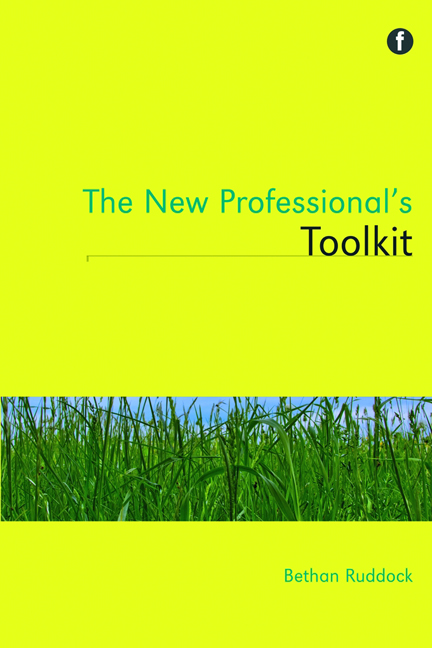Book contents
- Frontmatter
- Dedication
- Contents
- Preface
- Acknowledgements
- Glossary
- Introduction
- 1 Project management
- 2 Teaching, training and communicating
- 3 Meeting your users' needs and measuring success
- 4 Marketing your service and engaging stakeholders
- 5 Using technologies
- 6 Getting and staying online
- 7 Generating funding and doing more with less
- 8 Managing money, budgets and negotiating
- 9 Information ethics and copyright
- 10 Upskilling and professional development
- 11 Networking and promoting yourself
- 12 Professional involvement and career development
- Conclusion
- Appendix: Budgeting example spreadsheet
- Index
4 - Marketing your service and engaging stakeholders
Published online by Cambridge University Press: 08 June 2018
- Frontmatter
- Dedication
- Contents
- Preface
- Acknowledgements
- Glossary
- Introduction
- 1 Project management
- 2 Teaching, training and communicating
- 3 Meeting your users' needs and measuring success
- 4 Marketing your service and engaging stakeholders
- 5 Using technologies
- 6 Getting and staying online
- 7 Generating funding and doing more with less
- 8 Managing money, budgets and negotiating
- 9 Information ethics and copyright
- 10 Upskilling and professional development
- 11 Networking and promoting yourself
- 12 Professional involvement and career development
- Conclusion
- Appendix: Budgeting example spreadsheet
- Index
Summary
Introduction
As an information professional you may find that marketing doesn't come naturally to you. Unfortunately, just having a great service isn't enough. If you don't let people know about the benefits that your service can offer, you are not doing all you can to provide them with the service they need.
Marketing isn't a dirty word, or an extra that sits on top of your services. It is an integral part of meeting your users’ needs – as the CILIP code of professional conduct states, members should ‘Ensure that information users are aware of the scope and remit of the service being provided’ (CILIP, 2004).
A key point about marketing, particularly of information services, is that it needs to be benefit-led. While this might sound obvious, much library and archive marketing has traditionally been feature-led – ‘we have [x number] books! And [x number] databases! Come visit!’. These types of marketing message will only resonate with those who are naturally inclined to be excited by large numbers of books or databases – other information professionals.
What marketing should be doing is informing your users (and non-users and lapsed users) of what you can do to make their life better. Rather than telling them how many books you have, tell them that you can find them something new and exciting to read. Don't state that you have many original historical documents available – shout about how you can help them to find unique sources to produce unique research. Don't send out a bland e-mail telling staff that the electronic library is now available from their desktop; lead by asking, ‘Want to save time on your research?’
If people don't know why they should use you, they won't, and will therefore not get the benefits of all the carefully curated information resources you have purchased for them. It could be argued that lack of proper promotion of library and information resources will have a detrimental effect on the quality of information that your users will receive – either driving them to Google, or leading them to pay for information which they could have got free from the library. Increased visibility will increase usage, and is the best possible way to stop accusations of irrelevance and prove your value.
- Type
- Chapter
- Information
- The New Professional's Toolkit , pp. 55 - 72Publisher: FacetPrint publication year: 2012



